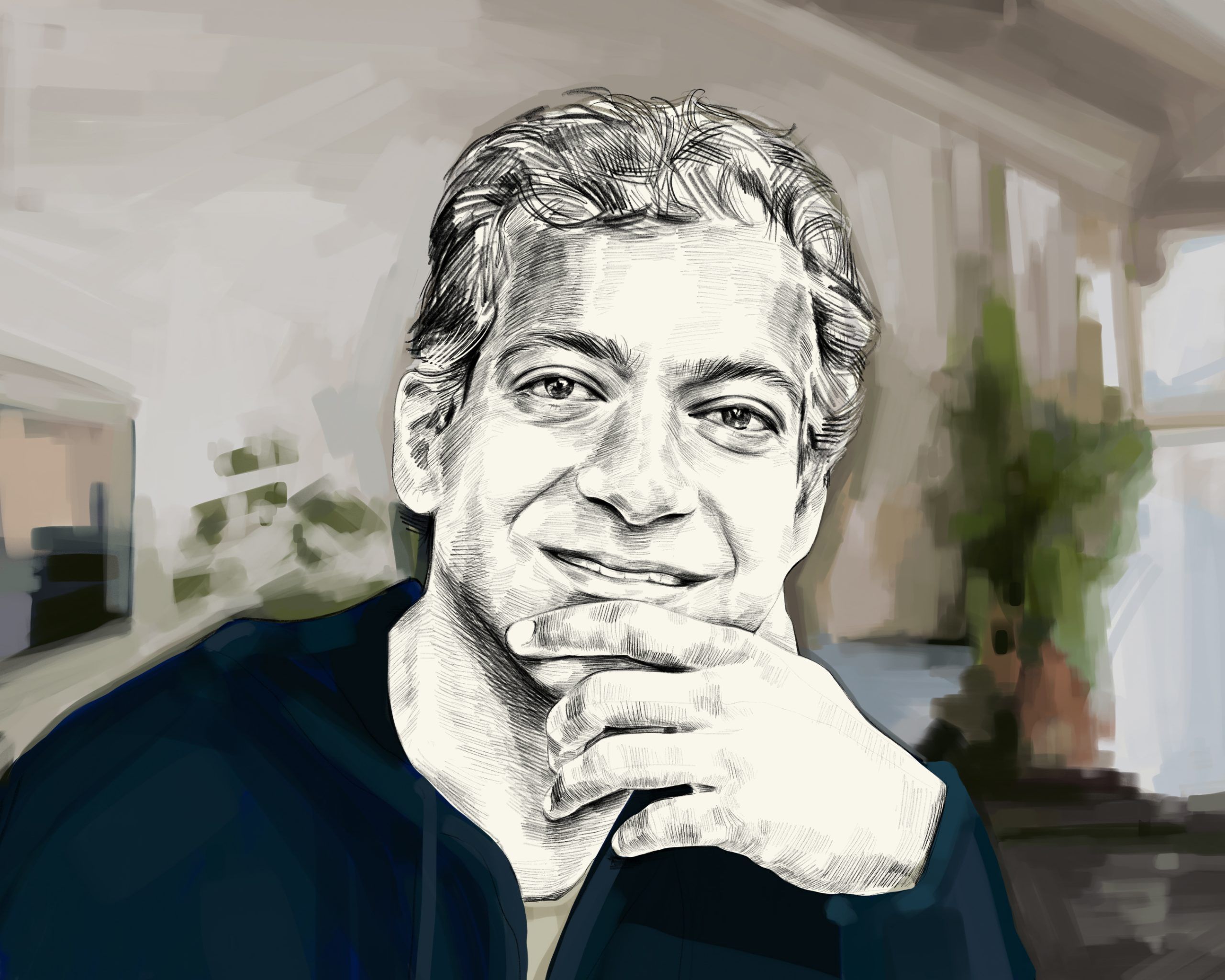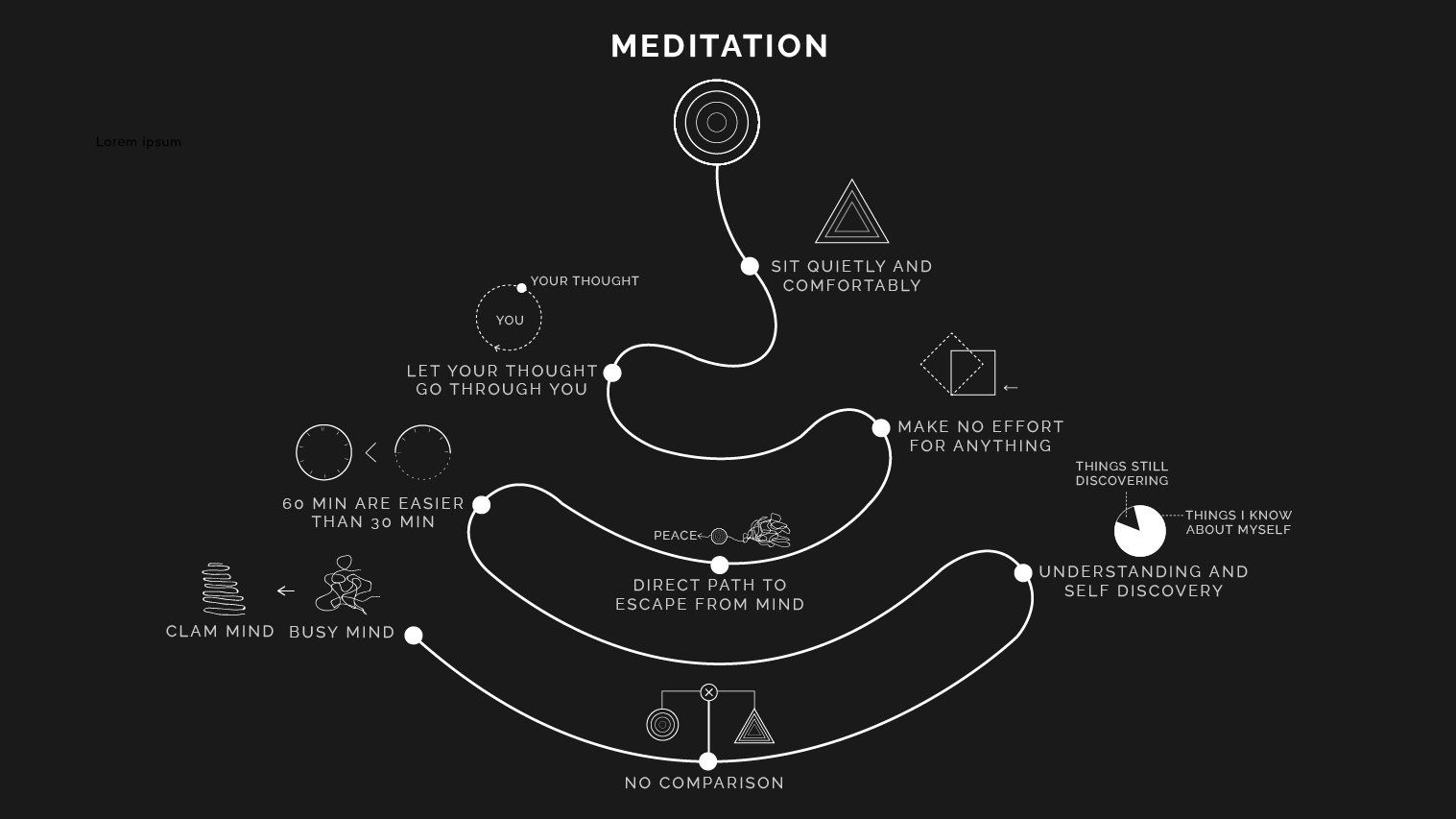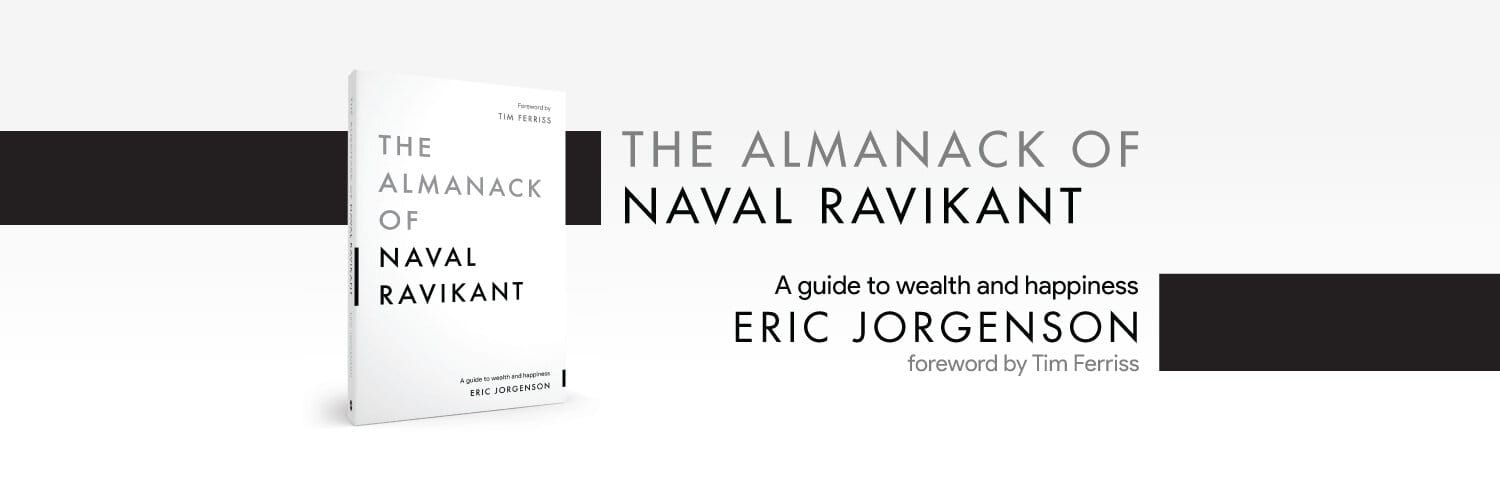Naval Ravikant on Meditation, Self-Examination and The Art of Doing Nothing

“Meditation is the art of doing nothing. You cannot do meditation. By definition, if you’re doing something you’re not in meditation.” – Naval Ravikant
Whether he likes it or not, Naval Ravikant has become a modern meditation guru.
A renowned entrepreneur and investor, Naval is most well-known for the clarity of his ideas – particularly the ideas he shares via Twitter where he’s amassed a million followers.
He’s the architect of the “tweet storm” – a Twitter thread that dives deep into a given topic – the most famous of which are How to Get Rich (without getting lucky) and Meditation – The Art of Doing Nothing.
Meditation – The Art of Doing Nothing:
— Naval (@naval) May 16, 2020
Naval’s ideas around meditation are the focus of this article.
I think his approach to meditation is worth exploring as it differs from some mainstream mindfulness practices.
And I believe there is no “one way” to meditate. My religious background has made me incredibly skeptical of anything that mandates “one way” of doing anything.
Also, in spite of his incredible financial success, Naval seems like a calm, mindful, well-balanced, happy guy so he must be doing something right.
I don’t think Naval should be put on a pedestal as a meditation guru.
But I think his ideas are useful for people who see meditation as effort or hard work.
Naval would say effort is the antithesis of meditation. Meditation is the art of doing nothing.
How hard can that be?
Want to get life-altering ideas in your inbox?
Sign up for the newsletter here.
Naval Ravikant’s meditation practices
Naval says he doesn’t like to use the words “meditation” or “practice”. Apparently “meditation” has become a trite buzzword and “practice” infers some kind of ritual, routine or spiritual “trap”, which is a big no-no. He prefers to use the term “self-examination”.
“But when I say meditation, I don’t mean sitting there and watching your breath or chanting a mantra. I mean self-examination, and meditation is a great way to do that self-therapy. It’s sitting there with your thoughts.”
This all sounds quite pretentious to me, as though he’s above calling a spade a spade because everyone’s using spades these days.
So for the purposes of this article, Naval’s meditation practices are just that – meditation practices.
I’ve curated this information from Naval’s most recent appearance on The Tim Ferriss Show, his Twitter thread, and other podcast appearances.
1. The Art of Doing Nothing

Naval describes meditation as the art of doing nothing.
I assume this is an attempt at being provocative, or cool.
It suggests that he thinks other forms of meditation require the meditator to do something and are therefore inferior.
It’s ironic because the way Naval describes “the art of doing nothing” sounds a lot like doing something.
Naval says that this practice is similar to “traditional meditation”, but requires less effort.
For the past two years, this has been his regular practice. This is how Naval does “nothing”.
1. You sit for at least 60 minutes first thing in the morning
“Unfortunately, not less than an hour at a time because it takes 30 to 40 minutes to skin in past the initial chattering.” He says it’s important to do it in the morning when you’re alert and your mind is clear. It doesn’t matter how you sit, there’s no “magic position”.
2. Let whatever happens, happen
“Whatever your mind wants to do, you just let it do. If it wants to talk, you let it talk. If he wants to fight, you let it fight. If it wants to be quiet, you let it be quiet If it wants to chant the mantra or pay attention to breathing, you can do that, but you don’t force anything.”
No focus, no mantra, no dharma, no chakras, no Buddhas, no gurus, no gratitude, no scripture, no temple, no music, no gadgets, no apps are required.
Some may be helpful, but eventually all will have to be left behind. Start simply, because that's where this all ends.
— Naval (@naval) May 16, 2020
3. Repeat each day for at least 60 days
“When you do that for at least 60 days, my experience has been that you kind of clear out your mental inbox and all the craziness that was going on. All the chattering will come out. Some problems will get resolved. You will have some epiphanies. You will make changes to your life.”
“Eventually you will get to a mental state of inbox zero, where now you’re just thinking about what happened yesterday. You’re kind of caught up and your mind is relatively clear and just your anxiety level goes down. You’re living more peacefully.” – Naval Ravikant
The meditation journey

This is different to traditional mindfulness meditation, which asks you to focus on your breath, notice your thoughts, and let them go. This practice requires some concentration and effort, whereas Naval’s approach emphasises effortlessness.
If you feel like focussing on the breath, do that. If thoughts or feelings arise, let them.
There’s an ease to this practice that might be quite liberating for some people.
However, it certainly isn’t “doing nothing”. There’s a degree of commitment and discipline required. It’s not small ask to sit in meditation for 60 minutes a day for two months.
You need to make time and space to do it.
But, perhaps, in the chaos and noise of the modern world this practice is about as close to “doing nothing” as you can get.
2. Awareness practice
The second meditation practice that Naval does is simple awareness, but not in a “Oh, I’m going to be aware of my thoughts kind of way”.
So… in what kind of way, exactly?
“Just realizing that a lot of these thoughts that come up are unbidden I don’t control them. It’s not like I decided to have this thought. I don’t even know what I’m saying to you right now. It’s coming out of my mouth at the same time as I’m thinking it. So where is this coming from? Who is this person? What is this person saying? Is this true? Is it correct? Has it been correct in the past? Is he just being paranoid now? Is it being crazy? What are his underlying motivations?
And I’m not even questioning so much, but more just kind of seeing it. And after a while, when you see it, you start seeing through your own BS, you start seeing how you’re mainly just justifying whatever the heck you want to believe, because it’s good for your survival. It’s good for your replication, or it’s good for your money, or it’s going to get you late or any of these various things.”
This is a practice that often emerges organically as a result of regular meditation.
Meditation helps you not to identify with your thoughts and feelings, so you start seeing them more objectively in everyday life.
Naval’s describing the experience of being the “observer” – knowing that you’re the person having the thoughts but you are not the thoughts.
It’s a legitimate superpower that you can carry with you at all times. You don’t need to be sitting on a cushion with your eyes closed.
It helps you to be more honest with yourself. To be responsive rather than reactive. And to hop off the rollercoaster that is our thoughts and feelings.
Get all of Naval’s best ideas in the new book The Almanack of Naval Ravikant: A guide to wealth and happiness
3. Reading philosophy
The other meditation practice Naval does is reading philosophy at night before he goes to bed.
He enjoys the works of Arthur Schopenhauer, Osho, Krishnamurti, Kapil Gupta, Rupert Spira, Anthony de Mello and appreciates ancient texts such as Vasistha’s Yoga, the Bhagavad Gita, Tao Te Ching (see reading list below).
“I’ll read these at night. Usually, there’ll be one or two things I’ll catch on to, I’ll reflect on it before I go to sleep. So that is a form of self-examination and it’s not done because it’s a formula it’s done because I’m genuinely interested in these things. So it’s not work to me, it’s fun.”
I find reading philosophy meditative as well.
It transports you into the minds of history’s greatest thinkers.
It helps you to evaluate your own thoughts, questions and ideas and it can provide your with new perspectives on life and the nature of reality.
In fact, reading philosophy – especially the books recommended below – may be the most accessible gateway to meditation available.
Naval Ravikant’s reading list
These are the books he specifically references in the conversation with Tim Ferriss, as well as some others that he’s recommended elsewhere.
There’s a lot to explore here. If you’re wondering where to start, Naval recommends Anthony de Mello, as do I.
- The Way to Love: The Last Meditations of Anthony de Mello by Anthony de Mello
- Awareness: The Perils and Opportunities of Reality by Anthony de Mello
- Siddhartha: A Novel by Hermann Hesse
- Vasistha’s Yoga by Swami Venkatesananda
- Bhagavad Gita: A New Translation by Stephen Mitchell
- Tao Te Ching: A New English Version by Lao Tzu and Stephen Mitchell
- The Untethered Soul: The Journey Beyond Yourself by Michael A. Singer
- Think on These Things by Jiddu Krishnamurti
- The Book of Life: Daily Meditations with Krishnamurti by Jiddu Krishnamurti
- Total Freedom: The Essential Krishnamurti
- The Great Challenge by Osho
- The Book of Secrets: 112 Meditations to Discover the Mystery Within
- Counsels and Maxims by Arthur Schopenhauer
- Direct Truth: Uncompromising, Non-Prescriptive Truths to the Enduring Questions of Life by Kapil Gupta
- A Master’s Secret Whispers: For those who abhor the noise and seek The Truth about life and living
- Atmamun: The Path To Achieving The Bliss Of The Himalayan Swamis. And The Freedom Of A Living God
- The Tao of Seneca: Practical Letters from a Stoic Master by Seneca
- Moral Letters to Lucilius by Seneca
- Meditations: A New Translation by Marcus Aurelius
- Tao of Philosophy by Alan Watts
Meditation should ruin your life
Naval says that proper meditation and self-examination should “ruin the life that you’re currently living”.
I like this idea.
He doesn’t mean this in a negative way. He means that when you examine yourself and develop greater awareness, you start to see through the illusions of life.
Beliefs and assumptions crumble.
Things that once had meaning appear meaningless.
Relationships that you valued suddenly seem less important.
The things you chase after and cling to lose their worth.
“So proper meditation, proper examination should ruin the life that you’re currently living. It should cause you to leave relationships. It should cause you to reestablish boundaries with family members and with colleagues. It should cause you to quit your job. It should cause you to change your eating patterns. It should cause you to spend more time with yourself.
It should cause it to change the books you read. It should cause us to change what your friends are. If it doesn’t do that, it’s not real examination. If it doesn’t come attached with destruction of your current life, then you can’t create the new life in which you will not have the anxiety.” – Naval Ravikant
This is both the risk and reward of meditation and self-exploration – that you will see your self and reality for what they really are.
Proceed with cautious optimism.
Why should you care about Naval’s approach to meditation?
Naval doesn’t bring anything new to the meditation table.
The practices he describes have been around for centuries.
However, they do differ slightly from mainstream Western mindfulness meditation, which is why I decided to write about them here.
Naval’s social influence means he has the potential to introduce meditation to people who may never have considered it before.
I think that’s a good thing.
But those people should be aware that Naval’s word is not gospel. He says himself that there are many ways to meditate.
His practices just happen to be the ones that work for him.
Make sure that you find what works for you.




